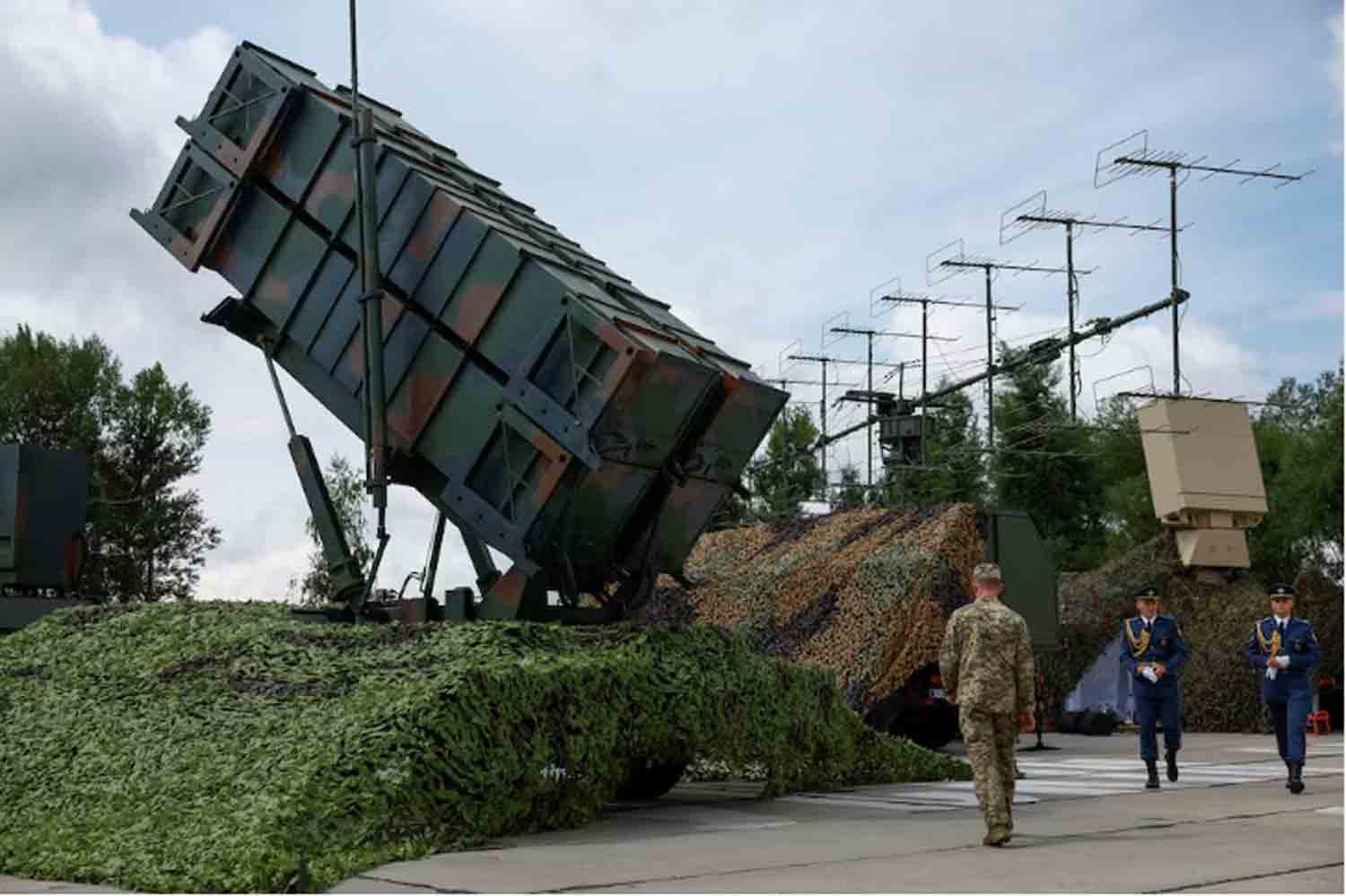The Trump administration is relocating a refurbished Patriot air defense system from Israel to Ukraine, as confirmed by a US official to Middle East Eye on Monday. This decision, initially reported by The New York Times on Sunday, is seen as a demonstration of support for Kyiv following a meeting between Trump and President Volodymyr Zelensky last month at the Vatican aimed at mending their previously strained relationship.
In recent weeks, Trump has intensified his criticism of Russian President Vladimir Putin, and the US and Ukraine have finalized a significant agreement regarding critical minerals.
However, both a current and a former US official indicated that this transfer of the Patriot system may also serve as a message to Iran, signaling the Trump administration’s willingness to reduce regional tensions while continuing nuclear negotiations.
The New York Times noted that the agreement to transfer the Patriot system was made with Israel in September under the previous Biden administration, but it still requires approval from the Trump administration. The Patriot systems are highly valued air defense assets that the US operates and shares with allies worldwide.
Last month, the US transferred one system from Asia to the Middle East amid rising tensions with Iran. The current initiative to relocate the Patriot system coincides with a renewed emphasis on enhancing Israel’s air defense capabilities, particularly after a Houthi ballistic missile struck a parking area near Terminal 3 at Ben Gurion Airport in Tel Aviv. This incident sent shockwaves through Israel, undermining the sense of invulnerability that had been established over the past year, especially following two rounds of meticulously planned missile and drone strikes by Iran that caused minimal damage, according to US and Israeli officials.
According to Israel’s Army Radio, both the Arrow 3, the nation’s most advanced air-defense system, and the US’s sophisticated Thaad system were unable to intercept the Houthi missile. In response, Israel conducted nine airstrikes on Hodeidah, Yemen, by the time of this report. US and Arab officials monitoring the situation informed that the method by which the missile bypassed these defense systems and reached the airport remains unclear.
Arrow system
Israel’s air defense framework, which is heavily funded by the US, features a multi-layered approach. The Arrow system is designed to intercept ballistic missiles at high altitudes, while the Iron Dome targets short-range threats, and David’s Sling is aimed at medium-range projectiles.
The Arrow 2 is specifically for long-range atmospheric missiles that may be launched by Iran or Hezbollah in Lebanon. Arrow 3 is intended for high-altitude missiles that could be launched by the Houthis or Iran.
Israel has finalized its foreign military financing for the current year, and both current and former US officials indicate that the Trump administration needs to negotiate a new aid package for 2026 by year’s end. Israel is also working to reduce its dependence on US-supplied Patriots, with its air force announcing in February a shift towards greater use of its domestically produced Iron Dome.
However, US allies are in fierce competition for access to Patriots, and the allocation of these systems often reflects US strategic priorities and can indicate tensions in bilateral relations.
Iran nuclear talks
The Wall Street Journal disclosed that during the spring and summer of 2021, the Biden administration withdrew Patriot missile systems and their interceptors from Saudi Arabia. This decision was part of an effort to conclude the Saudi-led coalition’s conflict with the Houthis in Yemen, which the administration had publicly criticized for human rights violations.
Subsequently, in March 2022, the administration replenished Saudi Arabia’s stock of Patriot antimissile interceptors in anticipation of President Biden’s visit aimed at mending relations.
Meanwhile, the Trump administration allowed Israel to continue its military operations in Gaza after abandoning a brief ceasefire in March.
The White House also addressed a backlog of postponed arms deliveries to Israel. However, relations remain strained due to Iran, as President Trump seeks to negotiate a nuclear agreement with the country. The discussions are supported by ‘America First’ isolationists, yet they face criticism from conventional pro-Israel Republicans.
According to a report by The Washington Post over the weekend, Trump dismissed his former national security advisor, Mike Waltz, partly due to his conversations with Israeli Prime Minister Benjamin Netanyahu regarding a potential attack on Iran. Waltz had been nominated to serve as the US ambassador to the UN.
Discover more from Defence Talks | Defense News Hub, Military Updates, Security Insights
Subscribe to get the latest posts sent to your email.





